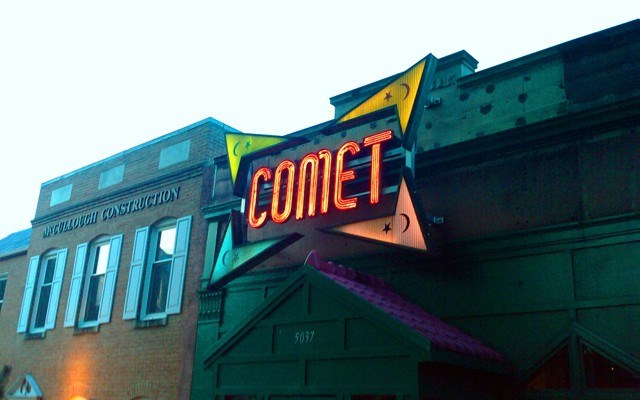The Athenian philosopher king Socrates was hugely pessimistic of democracy.
At the core of his criticism was the question of why society allows uneducated voters choose its leaders. He likened it to a ship; you wouldn't let just any Joe Blow at the helm. Why should democracy be any different?
It's an argument I was reminded of as America navigates its own stormy political waters. There were undoubtedly a myriad of factors that led to Donald Trump's stunning Election Day upset that are far from new in the history of U.S. politics: wariness of the D.C. elite, stoked fears over immigration and a working class left feeling economically abandoned. But there was also a new factor at play: the rise of fake news.
These sensationalist websites prey on the far right's deepest fears and prejudices, hastily publishing unsourced, conspiracy-tinged drivel — Hillary invented AIDS! Obama is a jihadist! — that wouldn't pass the most basic of fact checks. (Even fact checking, that bedrock of modern journalism, became a bad word during the campaign. The more news outlets worked to disprove Trump's endless litany of falsehoods, the more it cemented his base's distrust of the "lamestream media.")
As guilt-ridden reporters on the left scour for answers explaining how these sites continue to hold sway over millions of Trump supporters — and click-hungry news outlets should certainly take some of the blame here for not checking their sources before breathlessly re-reporting half-truths — the media has mostly skirted around the true cause: the ignorance of the average news consumer.
In a country where, according to the Literacy Project Foundation, 45 million people read below a 5th-grade level, you could make the argument that America is ripe for misinformation to take root. But the U.S. literacy rate has remained largely unchanged for years, and the rise of fake news is a relatively recent phenomenon. Besides, in the age of Internet scams and online snake-oil salesmen, the average American is too savvy to be duped. Dare I suggest Trumpites' ignorance isn't always accidental?
"What is truly horrifying is that fake news is not the manipulation of an unsuspecting public," author and media commentator Neal Gabler writes in a recent column on billmoyers.com. "Quite the opposite. It is willful belief by the public. In effect, the American people are accessories in their own disinformation campaign."
While most news outlets appeal to a reader's intellect, this modern brand of yellow journalists has realized it's far more effective to capitalize on a reader's emotions. Deep down, I suspect the majority of consumers blindly sharing these stories know full well they aren't real, or at the very least, stretch the truth. But when a headline (or a presidential candidate, for that matter) speaks directly to the fear and alienation that a large swath of the voting public feels, it becomes easier for them to overlook the red flags. It feels right, so it must be.
We saw how dangerous this kind of misinformation can be this weekend when a gunman armed with an assault rifle walked into a D.C. pizzeria to investigate one of the more ludicrous conspiracy theories from campaign season, and one that was apparently fomented by Trump security advisor Michael Flynn, which falsely alleged Hillary Clinton was running a child-sex ring out of the restaurant's basement.
It wasn't all that long ago that the media landscape was a much smaller place, with only a handful of major news networks and publications of record. There wasn't the diversity of voices we hear today, but there was also an agreed-upon set of facts in society, no matter what side of the aisle you sat on.
Today, we live in a post-truth era, when facts are less important than the volume and ferocity with which you shout them. The Internet was envisioned as the great intellectual equalizer, where everyone would have access to the same trove of information. Instead, it's created a platform for all sorts of fringe ideas and crackpot theories that have bled their way from the far corners of the web into the top halls of power. We now have a President-elect who can forego the traditional channels of the Fourth Estate by speaking directly to his 17 million Twitter followers. That wouldn't be an altogether bad thing if Trump recognized the significance of his platform instead of retweeting white supremacists and squabbling with Alec Baldwin.
The optimist in me wants to believe that Trump will miraculously rein in his blatant prevarication, but I think it's more realistic to assume we'll be spending the next four years watching the captain go down with the ship.




